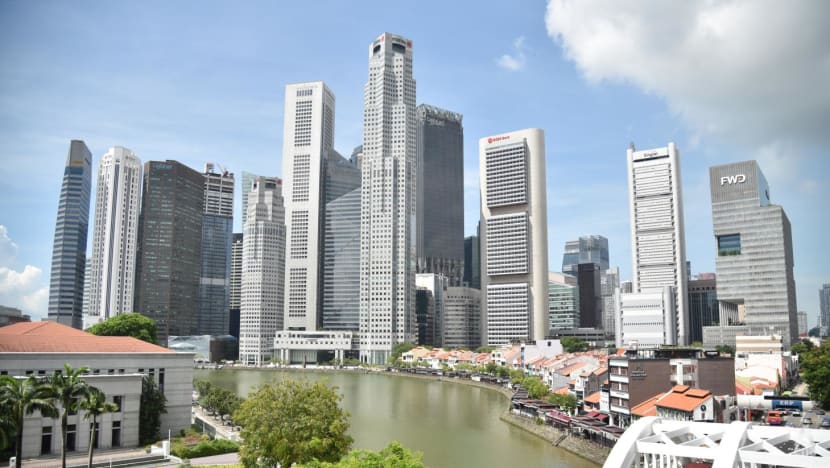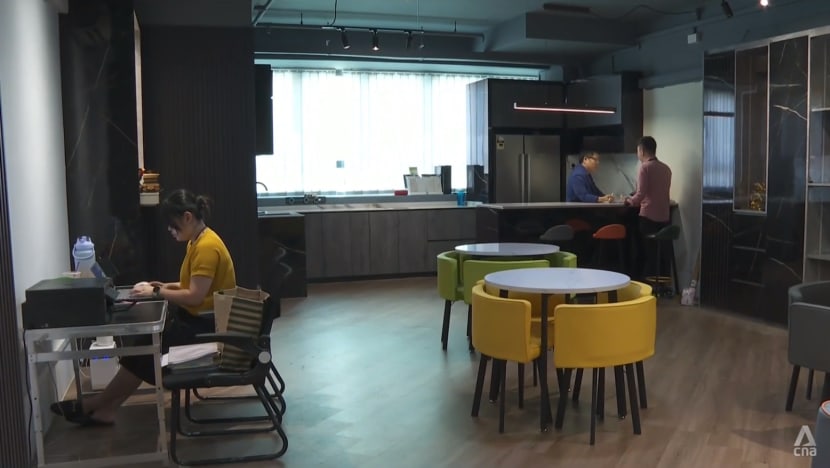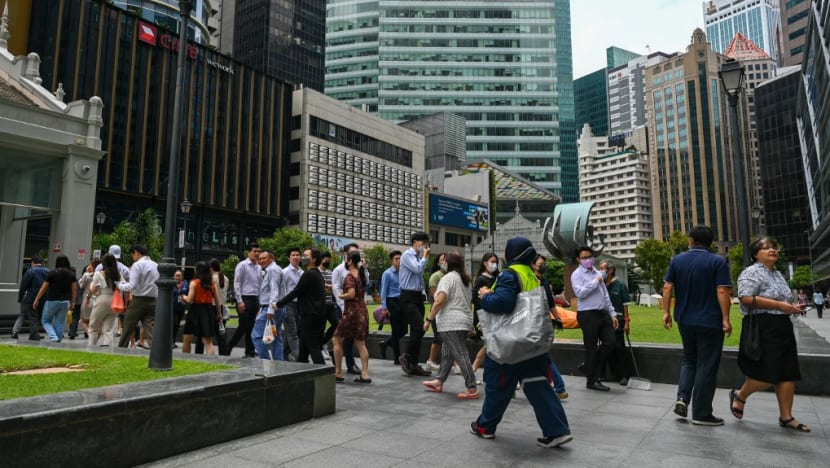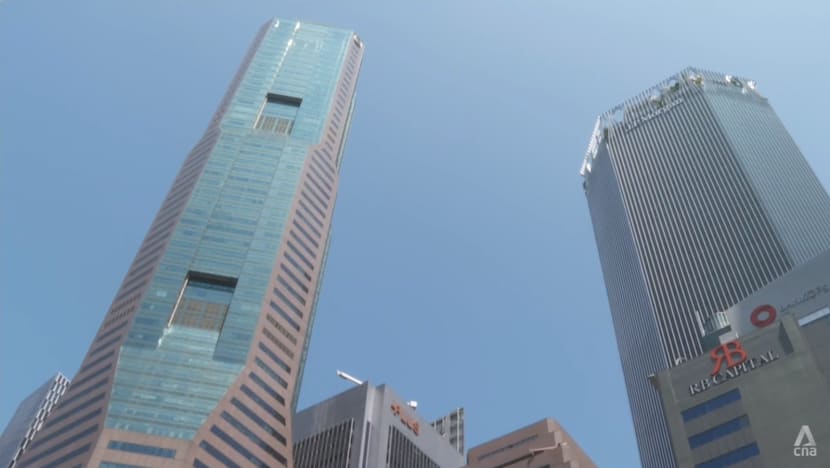Smaller firms set up shop in industrial estates, drawn by more affordable rental costs
While some expect the trend to continue with firms in weaker sectors giving up their central office spaces too, others expect occupancy rates to remain firm with foreign companies setting up new offices here.

SINGAPORE: Higher office rents are forcing smaller firms to move away from the city centre into industrial areas.
One real estate agent told CNA that as much as 20 per cent of his clients have moved out of town over the past three years, as they seek more affordable options elsewhere.
The trend is expected to continue, as firms in weaker sectors, such as cryptocurrency and consumer banking, may consider giving up their office space too, said observers.
However, some experts expect occupancy rates to remain firm, especially with some 200 foreign firms setting up new offices in Singapore over the past two years.
INDUSTRIAL SHIFT
Working spaces in Singapore's industrial estates tend to attract smaller firms and younger generation entrepreneurs, such as those in e-commerce and renovations.
Interior design firm Le Home Interior is currently renting a space in the Tai Seng industrial estate for about S$2,800 a month.
Its director Benjamin Loo told CNA that before the COVID-19 pandemic, it cost about S$1,900 to S$2,000 per month, before rising to its current price.
“There's a unit directly beside us that’s actually renting out at S$2,900,and there's one on level one asking for S$3,100 to S$3,200 to close the deal,” he said.

Mr Loo, who is also a real estate agent, said he believes office rents will continue to rise in the coming months.
Prices in industrial estates, however, are still expected to remain more affordable compared to renting a workspace in more central locations.
Typically, only businesses in sectors like manufacturing, warehousing, IT and research can rent spaces in such industrial spaces, analysts told CNA.
Mr Lee Sze Teck, senior director and head of research at Huttons Singapore, said that only bigger production companies, such as news companies, have offices in the central business district (CBD).
“For smaller businesses, the rental cost will not make sense for them. They would rather be in a place that's more economical for them,” he said.
"Those who are actually priced out of the CBD, naturally, they will have to look for an alternative space. Industrial (areas) is one of it, or even business parks. But they do have to qualify to be able to go to this space to operate their business."

EMPTY SPACES
Over in the CBD, office rents have gone up moderately by 0.9 per cent in the first half of this year.
Real estate firm CBRE said it is seeing more shadow space appearing in the central areas.
Shadow space refers to excess space on an existing lease obligation that the tenant would like to give up by finding a replacement tenant for the landlord, explained CBRE’s head of research for Singapore and Southeast Asia Tricia Song.
“So right now, it doesn't show in a vacancy, that's why the vacancy is still very strong. But in the future, it could materialise in the vacancies when the lease expires,” she said.
“So far this year, we have seen more sectors actually spotting some weaknesses as well. Sectors such as cryptocurrency and consumer banking, even some investment banking sectors, may consider giving up office space."
However, some experts are confident that occupancy rates will remain firm, propped by the arrival of foreign firms.

The number of new entities registered here increased by more than 8,000 in the first half of this year, according to the national business registry.
That is equivalent to almost twice the number registered in the same period last year, and could translate to more companies looking for office spaces.
Real estate firm Knight Frank called it a "flight to quality", where those who can afford to do so will look for greener and higher quality office spaces.
Its managing director for Occupier Strategy and Solutions Calvin Yeo said: "They will go for larger floor plates where they get more efficiency, and more so with today's component of hybrid working, you will actually use less space but higher quality space."
The real estate industry expects office rentals in older buildings to decline moving forward, but rents in newer and greener office spaces to increase up to 5 per cent this year.

















